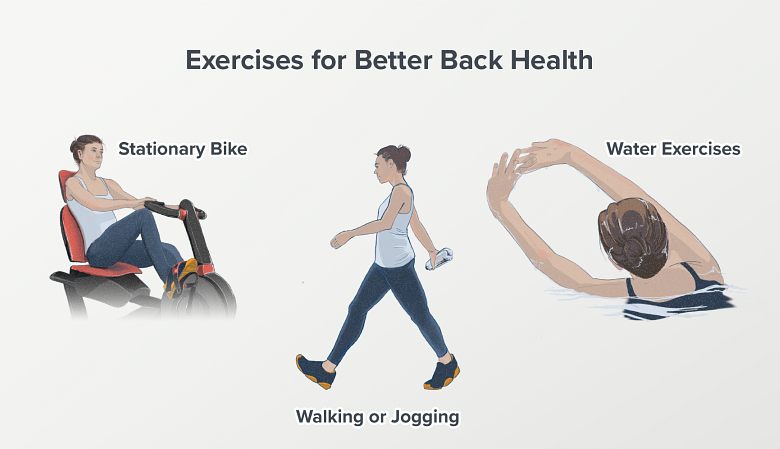LAHORE SPINE CARE
Table of Contents
ToggleThe Ultimate Guide to Spine Health for Athletes
Athletes often push their bodies to the limit, always striving for peak performance. Although much attention is paid to muscles, joints, and overall fitness, spinal health is often overlooked. However, a strong and healthy spine is crucial for successful athletic performance and long-term well-being. This comprehensive guide will explore the importance of spinal health for athletes, common issues, preventative measures, and effective exercises to maintain a strong spine.

Why Spine Health Matters
The spine serves as the body’s central support structure, connecting various parts of the musculoskeletal system. For athletes, a healthy spine is essential for several reasons:
- Core Stability: The spine is a critical component of the core, which provides stability and balance during physical activities.
- Injury Prevention: A healthy spine helps prevent injuries, particularly in sports that involve repetitive motions or heavy lifting.
- Optimal Performance: Proper spinal alignment ensures efficient movement patterns, enhancing athletic performance.
- Pain Management: A strong spine can help manage and prevent chronic pain, allowing athletes to train and compete consistently.

Common Spine Issues in Athletes
Athletes are prone to several spine-related issues due to the physical demands of their sports. Some common spine problems include:
- Herniated Discs: Occur when the soft inner material of a spinal disc protrudes through its outer layer, causing pain and discomfort.
- Spondylolysis: A stress fracture in one of the vertebrae, often caused by repetitive stress or overuse.
- Scoliosis: A lateral curvature of the spine, which can be exacerbated by certain sports and activities.
- Muscle Strains: Overuse or improper technique can lead to muscle strains, particularly in the lower back.
- Spinal Stenosis: Narrowing of the spinal canal, which can put pressure on the spinal cord and nerves.


Preventative Measures
Preventing spine issues involves a combination of proper training techniques, regular exercise, and lifestyle choices. Here are some key preventative measures:
- Warm-Up and Cool-Down: Always include a thorough warm-up and cool-down routine to prepare the spine and surrounding muscles for activity.
- Proper Technique: Ensure proper form and technique in all exercises and sports-specific movements to reduce unnecessary strain on the spine.
- Strength Training: Focus on strengthening the core muscles, including the abdominals, obliques, and lower back, to support the spine.
- Flexibility: Incorporate regular stretching and flexibility exercises to maintain spinal mobility and prevent stiffness.
- Rest and Recovery: Allow adequate time for rest and recovery between training sessions to prevent overuse injuries.
- Ergonomics: Pay attention to posture and ergonomics during daily activities, including sitting, standing, and sleeping.

Effective Exercises for Spine Health
Incorporating spine-specific exercises into your training routine can help maintain and improve spinal health. Here are some effective exercises:
- Planks: Strengthen the core muscles, supporting the spine.
- How to do it: Hold a plank position with your elbows directly under your shoulders and your body in a straight line from head to heels. Engage your core and hold for 30-60 seconds.
- Bird-Dog: Improves balance and stability while strengthening the lower back.
- How to do it: Start on your hands and knees, then simultaneously extend your right arm and left leg while keeping your spine neutral. Hold for a few seconds and repeat on the other side.
- Cat-Cow Stretch: Enhances spinal flexibility and relieves tension.
- How to do it: Begin on your hands and knees, arch your back (cow position) and then round your back (cat position), moving smoothly between the two.
- Bridges: Strengthen the glutes and lower back.
- How to do it: Lie on your back with your knees bent and feet flat on the floor. Lift your hips towards the ceiling, squeezing your glutes, and hold for a few seconds before lowering.
- Dead Bug: Engages the deep core muscles and promotes spinal stability.
- How to do it: Lie on your back with your arms extended towards the ceiling and knees bent at 90 degrees. Slowly lower your right arm and left leg towards the floor while keeping your lower back pressed into the ground. Return to the starting position and repeat on the other side.

Why get treatment by Lahore Spine Care
Lahore Spine Care (neuro and spine care) provides painless, non-invasive, and skilled physiotherapy and chiropractic therapy to restore spinal and joint alignment, relieve pain, correct posture, improve muscle function, enhance stability, and promote physical performance.

Conclusion
Spine health is a critical aspect of overall fitness and performance for athletes. By understanding the importance of a healthy spine, recognizing common issues, and implementing preventative measures and exercises, athletes can ensure their spine remains strong and functional. Prioritizing spine health not only enhances athletic performance but also contributes to long-term well-being, allowing athletes to continue doing what they love for years to come.
LAHORE SPINE CARE is proudly powered by WordPress